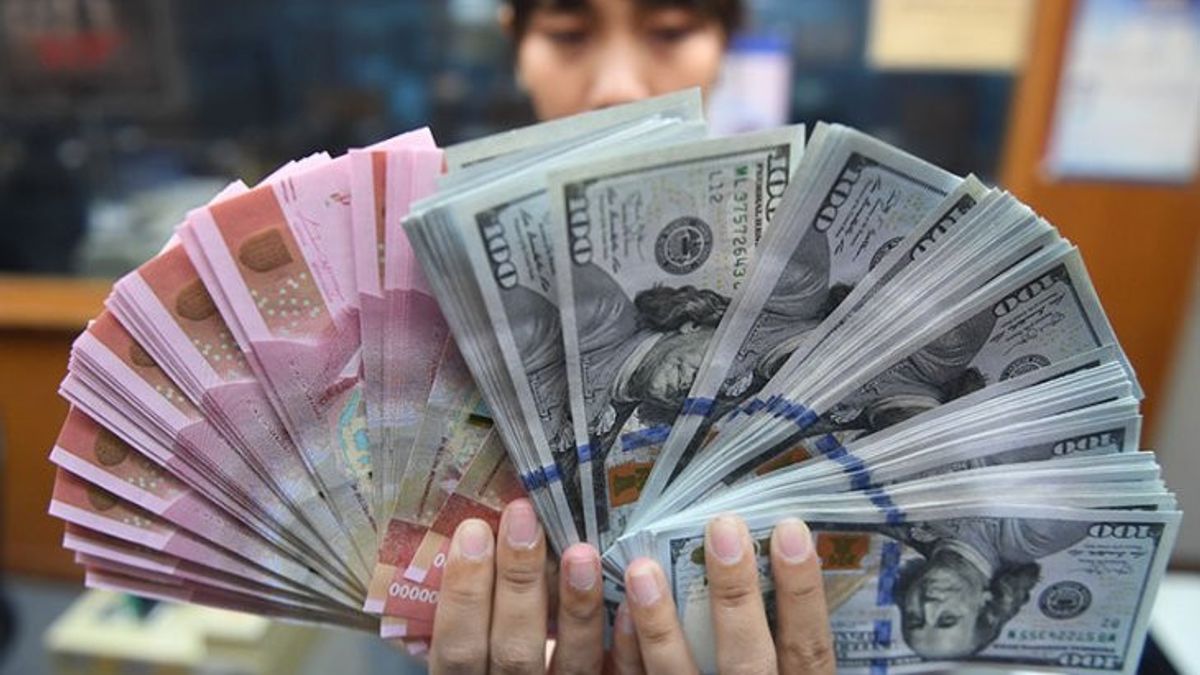JAKARTA - The plan of the United States central bank The Federal Reserve (The Fed) to tighten liquidity in the financial market (tapering off) is believed to have an impact on a number of countries, especially those categorized as emerging countries.
It is believed that Indonesia, which is included in one of the groups, will also feel the impact of the Fed's policies. Such is the report released by Nomura Securities as quoted by the editorial staff on Monday, September 6.
In fact, the global brokerage office included nine other countries that are strongly suspected of being affected by the tapering off of the Fed. The nine countries are Peru, Hungary, Romania, Turkey, Brazil, Colombia, Chile, the Philippines, and South Africa.
"Emerging markets are no stronger than the taper tantrum in 2013", said Nomura Securities.
In detail, it is stated that fragility stems from economic growth that is vulnerable to shocks, increased inflation, and reduced state financial capacity (fiscal).
However, Nomura found that in general, countries affected by previous taper tantrums had made efforts to strengthen them. This can be seen from the ability to accumulate foreign exchange reserves and narrow the current account deficit gap.
However, the COVID-19 disaster disturbed that establishment. Not only developing countries, but countries with advanced economic levels also feel the decline.
In simple terms, Nomura explained that the tapering of the Fed will result in the capital flight of foreign funds from emerging markets. If that happens in large numbers, then a difficult situation will be faced by Indonesia and the nine other countries mentioned earlier.
"The more foreign capital that has entered (to developing countries), it will turn outward (when tapering off)", said Nomura.
To note, developed countries have been taking quantitative easing approaches by flooding the market through abundant liquidity. The way, the central bank buys state securities as an economic stimulus.
SEE ALSO:
In addition, the central bank also set a policy of low-interest rates, even up to 0 percent, to 'force' funds parked in banks to be channeled through credit in order to turn the wheels of the economy.
After the situation is deemed to have reached the desired level, the central bank will begin to reduce purchases of government bonds and increase interest rates (tapering off).
The increase in interest rates then made investors divert their funds from developing countries to developed countries.
Bank Indonesia's Statement
In the previous VOI report, Governor of Bank Indonesia (BI) Perry Warjiyo said that the Fed would start making policy changes at the end of this year. According to him, the steps that must be observed are tightening liquidity in the financial market or what is commonly known as tapering.
"There is a risk of a change in monetary policy in America, where they will most likely start tapering later this year", he said in a virtual channel, Monday, August 30.
However, the BI boss is optimistic that the dynamics that will occur in the future will not cause a big shock considering that the market will definitely be watching the signals sent by the US central bank long before the decision is made.
"The understanding of the market is also getting better, and that's what we must anticipate in maintaining the rupiah exchange rate", said BI Governor Perry Warjiyo.
The English, Chinese, Japanese, Arabic, and French versions are automatically generated by the AI. So there may still be inaccuracies in translating, please always see Indonesian as our main language. (system supported by DigitalSiber.id)
















